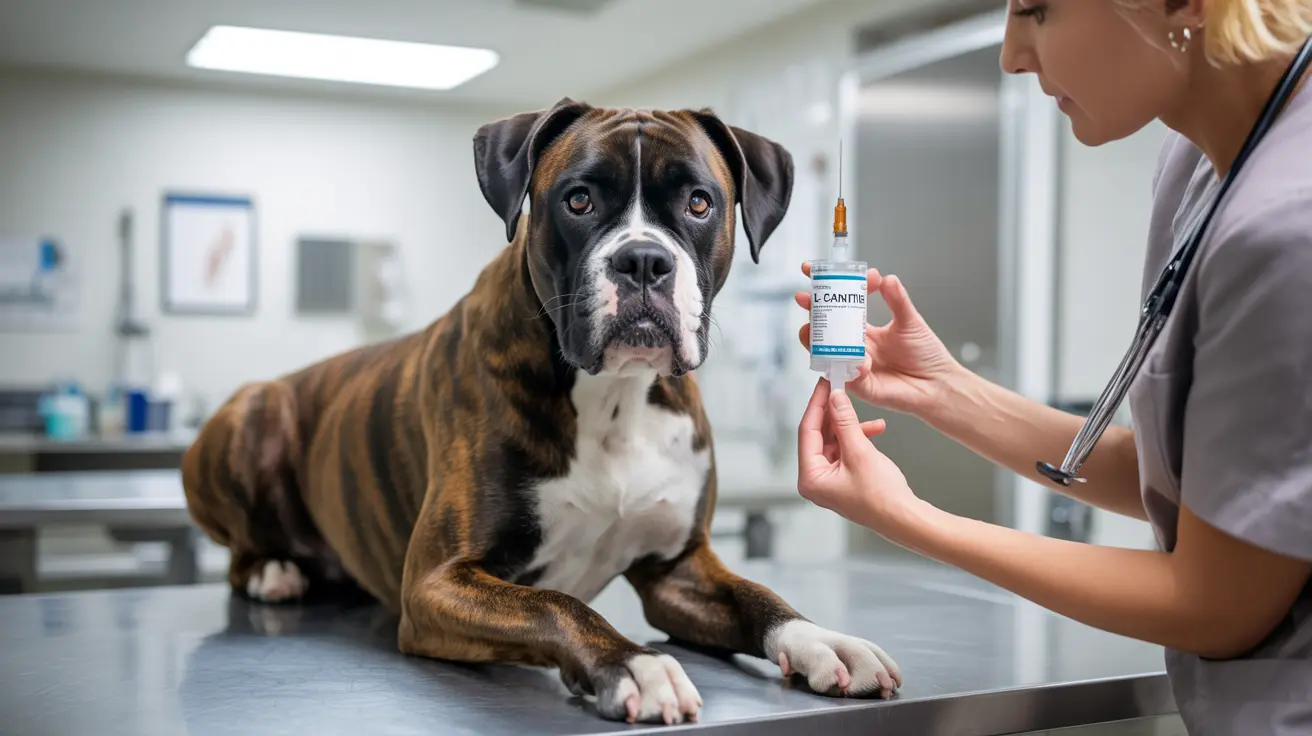L-carnitine for dogs has become increasingly important in veterinary medicine, particularly for its role in supporting heart health and energy metabolism. This vital compound, naturally produced in a dog's body, plays a crucial role in cellular energy production and has shown promising benefits for various canine health conditions.
Understanding how L-carnitine works and its potential benefits can help pet owners make informed decisions about their dog's health, especially when dealing with specific medical conditions or breed-related concerns. Let's explore everything you need to know about L-carnitine supplementation for dogs.
What Is L-Carnitine and How Does It Work?
L-carnitine is a conditionally essential nutrient that dogs naturally synthesize in their liver, brain, and kidneys using the amino acids lysine and methionine. Its primary function involves transporting long-chain fatty acids into the mitochondria of cells, where they're converted into energy through oxidation.
While healthy dogs typically produce adequate amounts of L-carnitine when fed a balanced diet, certain conditions may require supplementation. Dogs with genetic issues, heart problems, or those following restricted diets might need additional L-carnitine support.
Heart Health Benefits and Cardiac Support
One of the most significant applications of L-carnitine for dogs is in treating cardiovascular conditions. Research has shown particular effectiveness in managing dilated cardiomyopathy (DCM) and congestive heart failure (CHF). The compound helps improve energy efficiency in heart cells, supporting overall cardiac function.
Clinical studies have demonstrated that dogs with DCM often show improved cardiac function when supplemented with L-carnitine. In some cases, discontinuing supplementation led to a recurrence of symptoms, suggesting the importance of ongoing treatment for affected dogs.
Breed-Specific Benefits and Considerations
Certain dog breeds show a higher predisposition to conditions that may benefit from L-carnitine supplementation. Breeds particularly prone to DCM include:
- Boxers
- Doberman Pinschers
- Great Danes
- Cocker Spaniels
These breeds may receive preventative recommendations for L-carnitine supplementation, especially if they have a family history of heart conditions.
Additional Health Applications
Beyond cardiac support, L-carnitine offers several other health benefits for dogs:
- Weight management support through enhanced fat metabolism
- Improved energy levels and recovery for active dogs
- Muscle maintenance in senior dogs
- Antioxidant protection against cellular damage
- Enhanced brain function
Safe Administration and Dosing
When considering L-carnitine for dogs, proper administration is crucial. The supplement is available in various forms, including tablets, powders, and liquids. Always consult with a veterinarian before starting supplementation, as they can recommend the appropriate dosage based on your dog's specific needs.
While L-carnitine is generally safe, excessive amounts may cause mild gastrointestinal upset. Regular monitoring and adjustment of dosage under veterinary supervision ensures optimal benefits while minimizing any potential side effects.
Frequently Asked Questions
How does L-carnitine help with heart conditions in dogs?
L-carnitine improves energy metabolism in heart cells by facilitating fatty acid transport to cellular mitochondria. This enhanced energy efficiency helps support overall cardiac function, particularly beneficial for dogs with conditions like dilated cardiomyopathy or congestive heart failure.
What are the benefits of L-carnitine for working or active dogs?
L-carnitine helps active dogs by improving energy production, reducing fatigue, and supporting muscle recovery after exercise. It enhances fat metabolism while preserving lean muscle mass, making it particularly valuable for working and athletic dogs.
Can L-carnitine assist in weight management for overweight dogs?
Yes, L-carnitine can support weight management by enhancing fat metabolism. While research results vary, it helps maintain lean muscle mass during weight loss programs and supports healthy metabolic function.
How should I administer L-carnitine to my dog, and what dosage is recommended?
The appropriate dosage varies based on your dog's size, condition, and specific needs. Always consult with a veterinarian for proper dosing instructions. L-carnitine supplements are available in various forms, and your vet can recommend the most suitable option for your dog.
Are there any specific breeds that benefit more from L-carnitine supplementation?
Yes, certain breeds prone to heart conditions, particularly dilated cardiomyopathy, may benefit more from L-carnitine supplementation. These include Boxers, Doberman Pinschers, Great Danes, and Cocker Spaniels. However, any dog with relevant health conditions may benefit regardless of breed.






